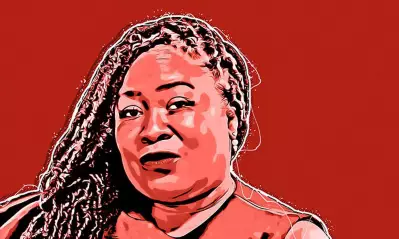Discover more stories in our Alumni Chronicles Magazine!
Committed: to transforming the lives of military veterans
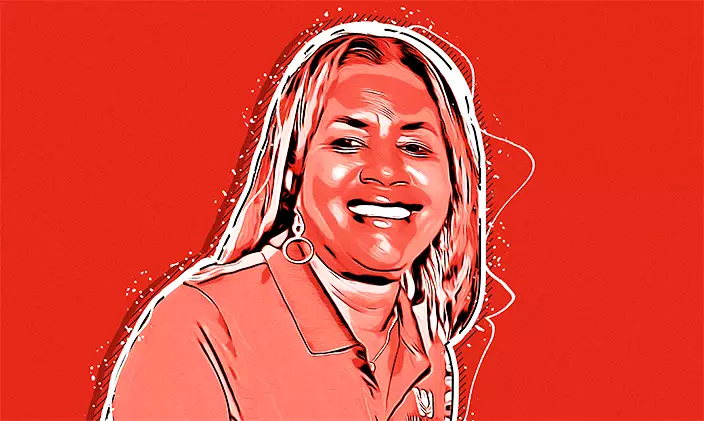
By Elizabeth Exline
“Certain things hit you, and you become either complacent or restless,” observes Shirley Dominick, the co-founder and president of the nonprofit organization Willing Warriors .
For Dominick, this moment arrived after she retired from the Air Force. She was working in the private sector, and her three children were nearly grown. She and her husband, John, had been challenged by their pastor to demonstrate love for their neighbors through community service. The project was supposed to last 40 days.
The Dominicks and other parishioners responded by hosting a Christmas celebration for service members at what is now the Walter Reed National Military Medical Center. That grew into hosting similar events at other military hospitals. By 2012, their 40-day challenge had become Willing Warriors, an organization that offers a physical retreat and dedicated programming to military service members and veterans and their families.
When forced to choose between restlessness and complacency, in other words, Dominick chose the former. And the synchronicities that have occurred throughout her life lend an air of destiny to everything she does. Restless people, it seems, can accomplish quite a bit.
Born in South Carolina to farmer parents, Dominick was one of 11 children who grew up in a home without running water. (Plumbing arrived when Dominick was in high school.) Days were spent working, either in the fields if it were summer or in the classroom during the school year.
“Our life was extremely simple,” Dominick recalls. “It was three things: You go to school, you go to church or you’re in the fields.”
Things changed when Dominick was in fifth grade, and her mother brought her along to the Piggly Wiggly store for groceries. There, Dominick encountered a Black woman wearing a blue uniform. She was captivated.
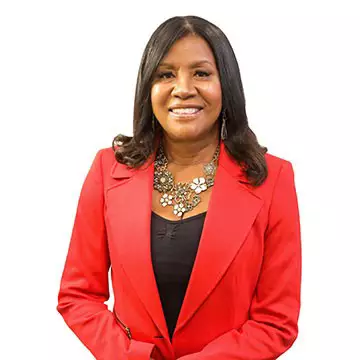
“I’d never seen anything like her,” Dominick says. “I followed this lady from aisle to aisle. I got so close to her, I could remember her insignia, her smile — I could remember everything about her.”
This was Dominick’s first brush with destiny, for of course the woman was in the Air Force.
(Dominick researched the woman’s uniform and insignia at school the following Monday.) Immediately, Dominick decided that was also where her future lay.
She would go on to earn a bachelor’s degree in mathematics and then join the Air Force, which took her all over the country for the next 22 years. Then, one day after her second daughter had been diagnosed with a childhood cancer, Dominick simply realized it was time to move on.
“I pulled myself together, and I went to the front office, and I said, ‘It’s time for me to retire.’ [My husband and I] didn’t even talk about it. I honestly believe when you know, you know.”
This sense of conviction is likely born from both her no-nonsense upbringing and her strong Christian faith. It’s the same sense of knowing her own mind that led Dominick to eventually grow Willing Warriors into a full-fledged retreat.
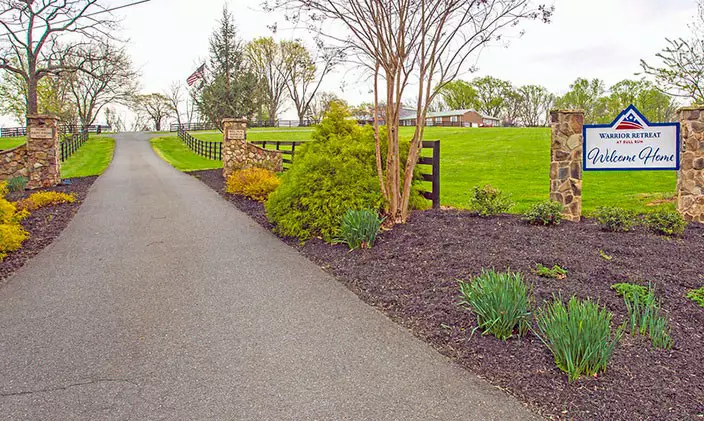
But even there destiny played a role.
Dominick and her husband had been working with military hospitals for a few years before they decided to turn the concept into a nonprofit. The Dominicks and the organization’s early board members were strategizing how to grow the nascent nonprofit when one man spoke up. He had a vision, he said, of a large home on a hill surrounded by 77 acres with horses and a black fence.
That night, Dominick was restless. At 4 in the morning, she got up, Googled “77 acres Virginia” and a property listing appeared less than 5 miles from her home. It even had the black fence.
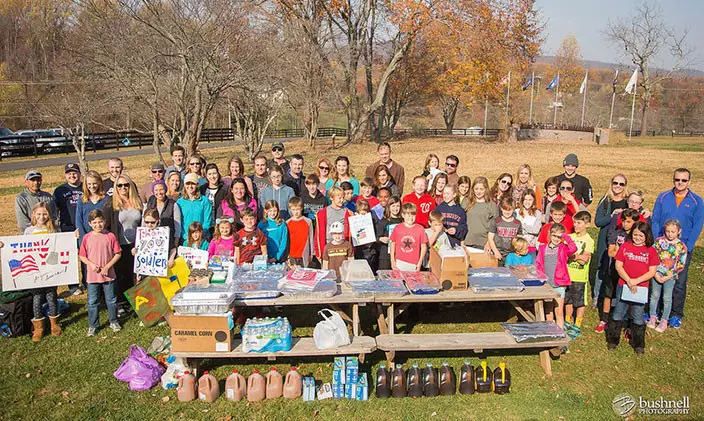
Willing Warriors was born. The Dominicks, a small team of staff and a large army of volunteers worked to renovate the property and make it ADA compliant. Today, Willing Warriors welcomes service members and veterans who arrive with up to nine family members or “battle buddies” to rest, recover and begin rebuilding their lives. The organization offers one-of-a-kind experiences and customized programming, from faith-based guidance to helicopter tours, fly-fishing expeditions and massages.
Dominick’s military and professional experience have empowered her to make Willing Warriors the success that it is, and so has her education.
She earned her master’s degree in public administration from another university, and she earned her Doctor of Organization Leadership Management from University of Phoenix in 2008. (That degree has since been retired and replaced with the Doctor of Management online degree program.)
As she reflects on her journey from growing up on a South Carolina farm to running her own IT firm and Willing Warriors, Dominick sees the hand of God in everything she’s done.
“I know now that some things are just supposed to be,” Dominick says. “God has a plan, and I believe He chooses certain people to do those things.”
Here’s how Dominick manages to answer that calling while juggling everything else. Complacence, after all, has never been her thing.
You went back for your doctorate when your children were still young, and you had already retired from the military. Why?
My dad was one of 14 children, and he had a sixth-grade education. I don’t even think he could read. But he always said, “Please get your education.” So, I remember feeling that I needed to take that step forward.
Being educated will make you a more well-rounded person. You are going to be exposed to so much more than you would have if you did not have your education.
At the doctoral level, I’m bringing something to the table. We can all collaborate, and together we can do amazing things.
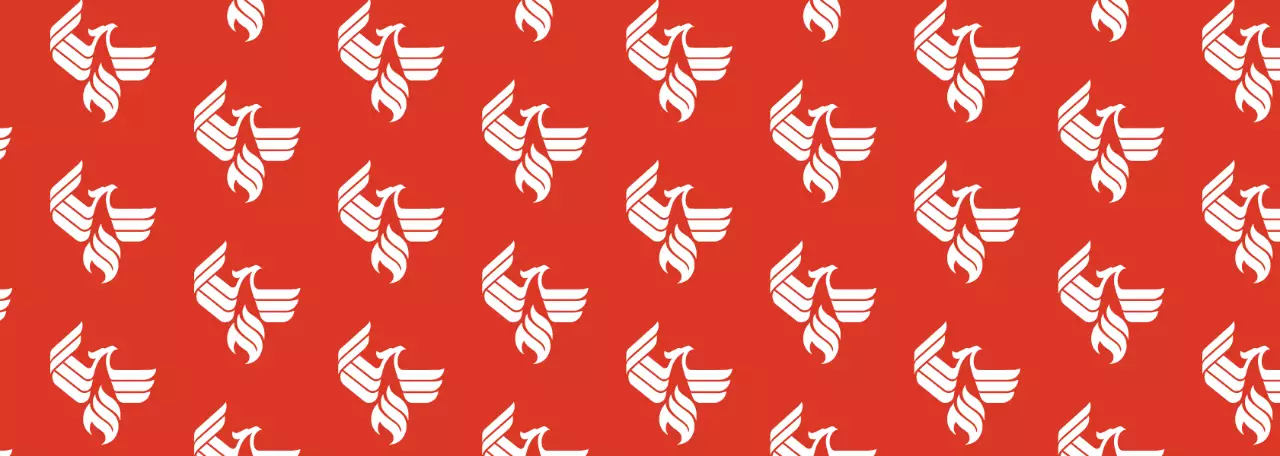
How do you juggle running a company, overseeing Willing Warriors and spending time with your family, including your two grandchildren?
I try to delegate much of it and be able to oversee things. While it seems like a lot (and it is a lot), there are so many people who have hands and feet who want to be a part of things, especially the nonprofit.
It’s now the accountability piece for me. I will say to people when I meet them, “Your word is your bond, OK? We’re going to count on you to do this.”
Looking back at my mom’s model, she brought us all in then said, “Here’s what you’re gonna do. It may seem like a lot, but at the end of the day, you’re gonna carry a piece, and I’m gonna carry a piece, and we’re going to make it happen.”
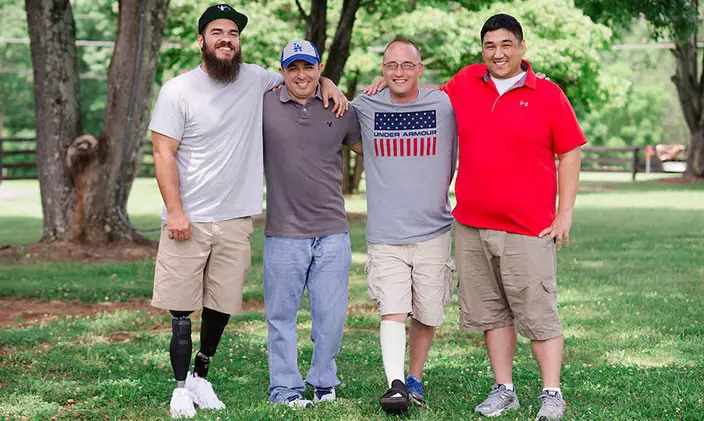
What motivates you to keep going when it would be easier to retire?
I know I will die with my boots on. There is no reason to sit. We have such an opportunity in this country to be able to learn and grow. So, there’s not a thought of waking up and calling it quits.
But the thought of, “What are we going to learn today? How are we gonna grow today?” is what excites me, because it’s not so much what I’m doing for myself. It’s what I’m doing for that generation behind. How can I connect with these youngsters who really need to hear and feel and touch those who have gone before?
The community around Willing Warriors has been incredibly supportive and regularly volunteers. Why is that?
My mom would have my siblings and me pull together veggies on the farm, and we would give them to neighbors. I was like, “I’m not giving them our food!”
And she said, “Oh, yes, you are. This is what we do for the neighbors.”
I think the same thing applies from our country’s perspective: What are we doing for our neighbor? What are you doing outside of the church? What are you doing outside to show people that you love them? That you care?
There’s a price that comes with this freedom that we have, and we all get to participate [in paying for it].

Why do you think the country needs Willing Warriors and programs like it?
I had no clue about the need until I got involved. During my 22 years in the military, I felt I was in a safe place. We didn’t go to combat, even though I was deployed.
So, to be able to see the need warriors and their families have for respite [is profound].
It’s difficult when you’re in the hospital, and you have the routine of appointment after appointment after appointment.
Here, family can actually be family again. They can reconnect and rejuvenate.
We’ve gotten so many letters from warriors and families. One said, “I didn’t even know my daughter loves basketball [until this retreat].”
There was also one warrior we’d known for years. He had four deployments and he refused to come to Willing Warriors, saying somebody else needed it more. When he finally called to come himself, I said, “If he’s calling, it’s serious.” So, we got him here with his family.
He wrote a long letter to the retreat after he left, and at the very end of it, he said, “With 22 suicides per day [in the military community], you just saved one. Thank you.”




